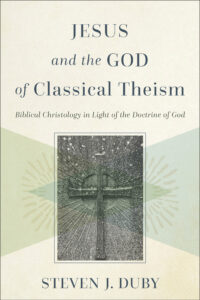
A General Aversion to Classical Metaphysics
F or most of church history, Christian interpreters of the Bible thought it fitting to make use of various concepts taken up and analyzed in the classical metaphysical tradition. They did this in order to exhibit what Scripture teaches about the triune God and to confess not just what God has done in history but also who God is in himself (insofar as that is knowable to us). However, certain factors at work over the past few centuries have altered the theological and exegetical landscape, yielding a reluctance to utilize the older concepts and categories and, in some cases, a tendency to locate the meaning of God’s revelation strictly within the compass of history, or at least within the context of God’s relationship to creation.
or most of church history, Christian interpreters of the Bible thought it fitting to make use of various concepts taken up and analyzed in the classical metaphysical tradition. They did this in order to exhibit what Scripture teaches about the triune God and to confess not just what God has done in history but also who God is in himself (insofar as that is knowable to us). However, certain factors at work over the past few centuries have altered the theological and exegetical landscape, yielding a reluctance to utilize the older concepts and categories and, in some cases, a tendency to locate the meaning of God’s revelation strictly within the compass of history, or at least within the context of God’s relationship to creation.
While many names bear mentioning here, it is difficult to engage modern theological discussion of metaphysics without including Immanuel Kant. In his quest to secure a kind of human knowledge marked by necessity and independence from the contingency associated with sense perception, Kant argued that the mind possesses various a priori concepts and judgments that shape the “raw material” of sense perception. 25 For most of church history Christian interpreters of the Bible thought it fitting to make use of various concepts taken up and analyzed in the classical metaphysical tradition. Click To TweetThe proper objects of human knowledge are in fact mental representations, not outward things themselves (especially not those things that transcend sense perception altogether). 26 In this account of human knowing, traditional concepts and categories in metaphysics (substance, quality, relation, action, passion, and so on) are a priori features of the mind, not something introduced in the mind by an encounter with the structures of outward reality itself.27 Since the mind will seek to find a “because” that answers its “why” questions, human persons end up positing God in order to account for and complete our knowledge of conditioned, limited beings. But this move, designated by the term “ontotheology,” does not provide any knowledge of God as an actual extramental being.28 For Kant, then, it is not theoretical but practical reason (deliberation about the actions that human beings should undertake) that provides a better pathway to obtaining certainty about the existence of God. Human awareness of moral obligation involves an awareness of the freedom of the human subject that cannot be accounted for merely by reference to the sensible realm. The awareness of moral obligation also engenders a belief and certainty about God and the prospect of a future life to come, if not a strict “knowledge” of God with objective grounds.29
The above excerpt is from the opening chapter of Jesus and the God of Classical Theism (Baker, 2022). Used by Permission.
Endnotes
- Kant, Critique of Pure Reason, A1-2.
- Kant, Critique of Pure Reason, Bxxxix, A30/B45, A36-B53, A104, B146, A368-76, А490-91/B518-19.
- Kant, Critique of Pure Reason, A77-83/B102-9, A92-95/B125-29, B406-13; Kant, Prolegomena to Any Future Metaphysics, 4:265-66.
- Kant, Critique of Pure Reason, A290-92/B347-49, A296/B352-53, B593-95, A578-91/ B606-19, A592-620/B620- 48, A632/B660, A845-46/B873-74; Kant, Prolegomena to Any Future Metaphysics, 4:350-60.
- Kant, Critique of Pure Reason, Bxxix-xxx; A3/B6-7; A820-31/B848-59. Kant’s more expansive treatments of morality and its connection with the concepts of God, freedom, and immortality can be found in his Groundwork of the Metaphysics of Morals; Critique of Practical Reason; and Religion within the Bounds of Mere Reason.

